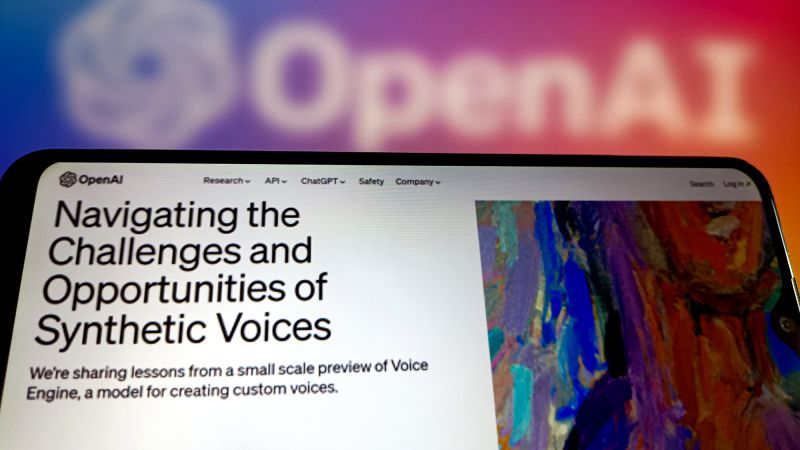
OpenAI says it’s working on AI that mimics human voices
CNN
ChatGPT maker OpenAI has unveiled its latest generative artificial intelligence tool, one that can make audio mimicking real human voices.
OpenAI has unveiled a new artificial intelligence tool that can mimic human voices with startling accuracy. The AI voice generator has a range of potential applications, including for accessibility services, but could also prompt concerns about misinformation and other forms of abuse. OpenAI on Friday shared samples from early tests of the tool, called Voice Engine, which uses a 15-second sample of someone speaking to generate a convincing replica of their voice. Users can then provide a paragraph of text and the tool will read it in the AI-generated voice. There are several AI-generated voices services already available to the public but, as it did with the breakout chatbot ChatGPT, OpenAI has proven particularly adept at garnering widespread adoption of AI tools. An AI-enabled text-to-voice tool could help with translation, reading assistance for children or aiding people who have lost the ability to speak, the company says. But some skeptics worry it could also fuel the creation of disinformation or make it easier to perpetrate scams. OpenAI says Voice Engine is currently being used by only a “small group of trusted partners,” including education and health technology companies, and it will use their tests to determine whether and how to allow more widespread use. Those testers have agreed not to recreate people’s voices without their explicit consent and to clearly identify to listeners that what they’re hearing is AI-generated, according to the company. “We recognize that generating speech that resembles people’s voices has serious risks, which are especially top of mind in an election year,” OpenAI said in a blog post. The company acknowledged the need for major changes as AI-generated audio becomes more widely available, although it doesn’t plan to release Voice Engine to the public immediately. For example, the company suggested phasing out voice-based authentication for bank accounts.





















 Run 3 Space | Play Space Running Game
Run 3 Space | Play Space Running Game Traffic Jam 3D | Online Racing Game
Traffic Jam 3D | Online Racing Game Duck Hunt | Play Old Classic Game
Duck Hunt | Play Old Classic Game











